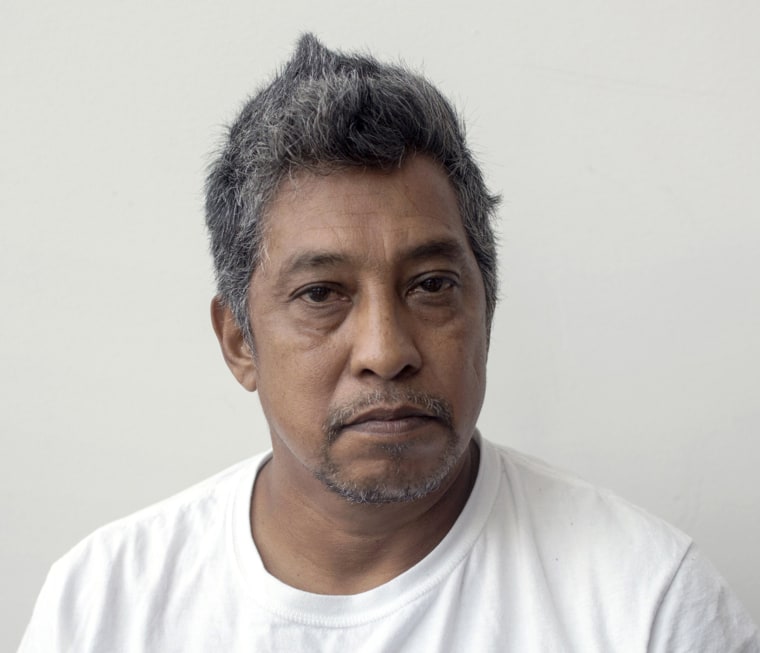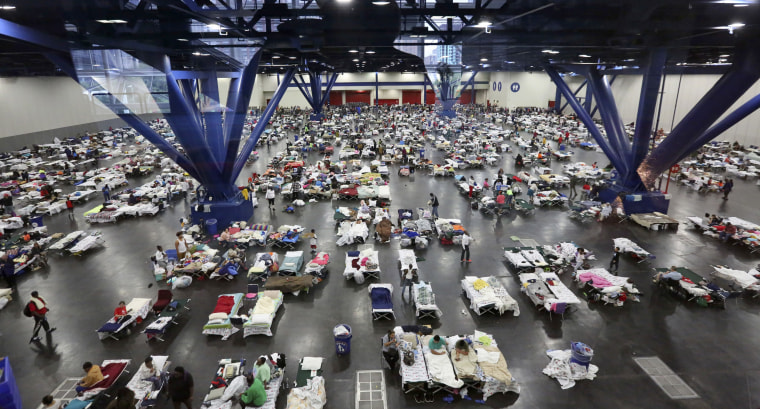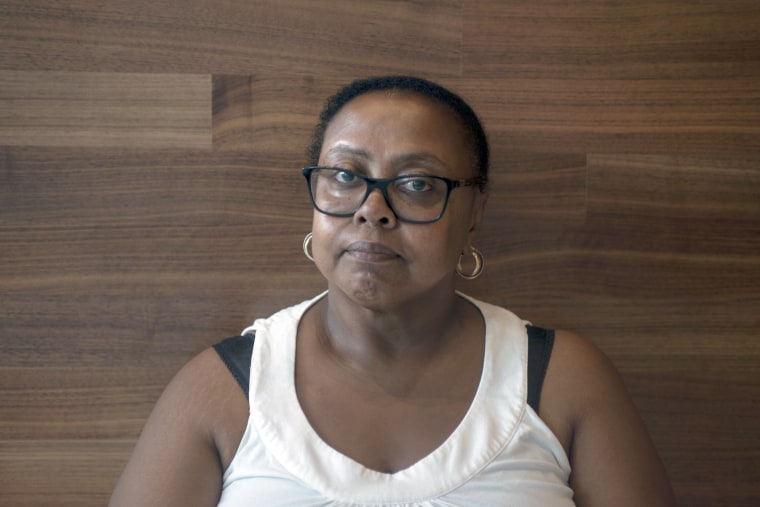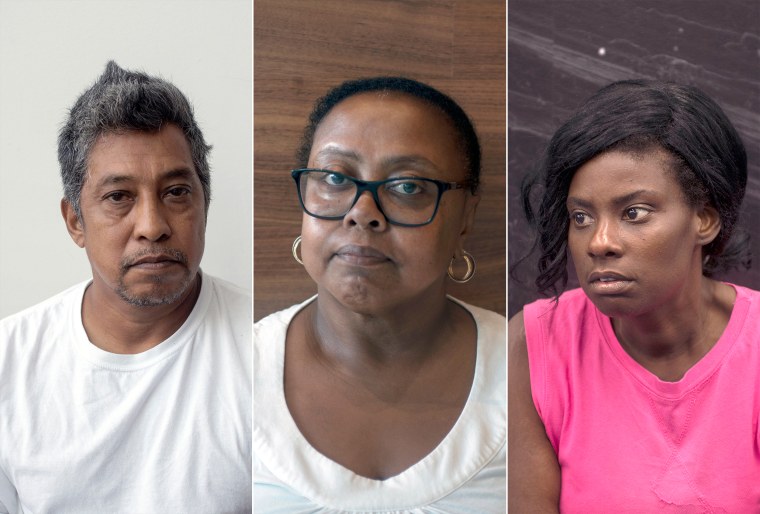HOUSTON — Cheryl Conley curled herself against a wall of the George R. Brown Convention Center on Friday, watching a family hauling their things to the exit, wishing she could do the same.
Forced to leave her boarding house by Hurricane Harvey's floodwaters, Conley was on her fourth day at the emergency evacuation shelter, and starting to panic.
She has epilepsy and a heart condition, and had left all but a couple of her 12 medications behind in her frantic flight to safety. She had nowhere to go, no one to call for help.

"People have forgotten about people like me," Conley, 34, said, beginning to cry. "I just want a home to go back to."
The yearning for home is a near-universal lament here. Harvey is estimated to have destroyed or caused major damage to more than 12,300 single, mobile and multi-family homes in Harris County, the Texas Department of Public Safety said. Many more were affected or suffered minor damage. The full extent of the damage is not yet known.
Some of the people who lived in those homes can afford to find a new place to live while they rebuild or decide whether to move away. But there are also others like Conley who have no idea where they will go.
Often, their only hope is the Federal Emergency Management Agency, which is offering loans to help homeowners rebuild and short-term housing assistance — hotel rooms and rental subsidies for others whose homes are uninhabitable or inaccessible. The agency said it is also speeding up claims under the National Flood Insurance Program, but the program only benefits people who had coverage before the storm.
At the convention center, where more than 9,000 people sought refuge this week, the lines for FEMA applications snake across the entrance hall, the survivors weary and uncertain.
"We're overwhelmed. We’re drained. We’re ready to go," said Conley, whose application, like others, remains pending.
Among those on line Friday was Ray Salinas, who worked security — and lived — at the headquarters of a food truck company on the city’s west side. The site was destroyed, he said.
"When I leave here, I don’t know where I’m going. Maybe the streets," Salinas, 52, said.

Vickie Carson is one of 12 family members spanning three generations who fled their flooded home on the city’s northeast side Saturday morning. A friend took them all in, but it was only a three-bedroom house, and no long-term solution.
She and a niece came to the convention center on Friday to get their FEMA application expedited, but had no luck.
They sat on bench, too tired to move.
"I didn't think it was going to be this bad, but it is," Carson said. "If I talk any more, I'll cry."
Before Harvey hit, there were more than 3,200 homeless people in Harris County, about two–thirds of whom were in some sort of shelter, according to a 2017 survey by the local Coalition for the Homeless.

Many of those who remained on the streets rode out the storm in emergency shelters. They’ve started returning to the streets, with Red Cross volunteers urging them to seek help from social service agencies.
The volunteers worry that Harvey will cause the number of chronically homeless people to climb.
The issue has been raised at morning meetings at the convention center, staff members said.
The Red Cross has also been dealing with a "second wave" of people who left the shelter and returned, said Jeannie Kropp, a disaster relief responder from Michigan.

"The water is receding, and people are leaving and expecting to go home and get out of this place," Kropp said. "But when they get there, they realize there’s nothing. So we have to be prepared for them to come back."
Tony Briggs, a Red Cross spokesman, said the agency would keep shelters open "as long as necessary" and recommended that evacuees remain until they are sure they have another place to stay.
Outside the convention center on Friday, Quincy Moore sat with a friend, unable to imagine where he would end up.
He was a patient at a drug rehabilitation facility outside Houston when the storm hit, flooding the building. He and other residents were taken by bus to the center.
That was four days ago.
He asked his friend to check his FEMA application status on her phone. Still pending.
Moore stared ahead.
"I'm not feeling very confident," he said.

